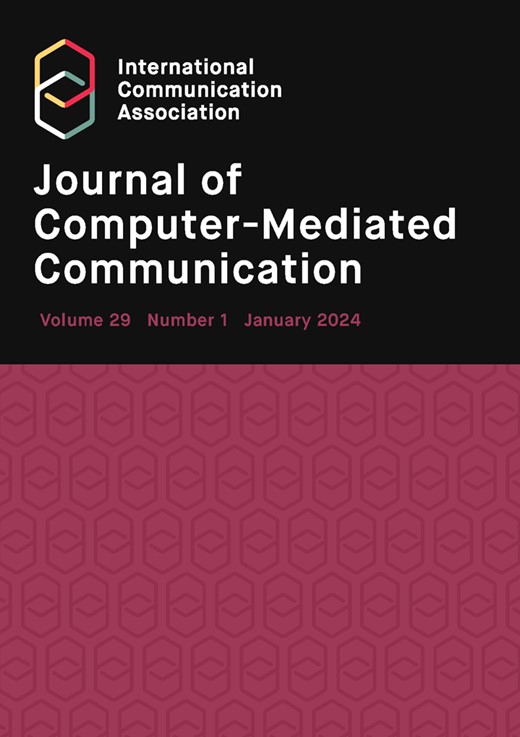Building relational confidence in remote and hybrid work arrangements: novel ways to use digital technologies to foster knowledge sharing
IF 5.7
1区 文学
Q1 COMMUNICATION
引用次数: 0
Abstract
Remote and hybrid workers know fewer of their colleagues and have fewer strong workplace relationships. If strong relationships support knowledge sharing, workers will have a harder time getting knowledge they need. Prior research shows that digital communication technologies increase workers’ network-level knowledge of “who knows what” and “who knows who.” Yet, knowledge seekers may be hesitant to ask for knowledge, particularly when they have concerns that their relationship with a knowledge source is too distant. We conduct a dyad-level study of 141 instances of knowledge seeking among employees of a South American telecommunications company employing a hybrid work arrangement and using an enterprise social media called Chatter. We find that specific uses of the technology help develop what we call “relational confidence,” or the confidence that one has a close enough relationship to a colleague to ask and get needed knowledge. With greater relational confidence, knowledge sharing is more successful.在远程和混合工作安排中建立关系信任:利用数字技术促进知识共享的新方法
远程办公和混合型员工对同事的了解更少,也没有多少牢固的工作关系。如果牢固的关系支持知识共享,员工将很难获得他们需要的知识。先前的研究表明,数字通信技术增加了员工对“谁知道什么”和“谁知道谁”的网络层面知识。然而,寻求知识的人可能会犹豫是否要寻求知识,特别是当他们担心自己与知识来源的关系过于遥远时。我们对一家南美电信公司141名员工寻求知识的案例进行了两级研究,该公司采用混合工作安排,并使用名为Chatter的企业社交媒体。我们发现,对技术的特定使用有助于培养我们所谓的“关系自信”,或者一个人与同事的关系足够密切,可以询问并获得所需知识的自信。关系信心越大,知识共享越成功。
本文章由计算机程序翻译,如有差异,请以英文原文为准。
求助全文
约1分钟内获得全文
求助全文
来源期刊
CiteScore
9.60
自引率
2.80%
发文量
26
期刊介绍:
The Journal of Computer-Mediated Communication (JCMC) has been a longstanding contributor to the field of computer-mediated communication research. Since its inception in 1995, it has been a pioneer in web-based, peer-reviewed scholarly publications. JCMC encourages interdisciplinary research, welcoming contributions from various disciplines, such as communication, business, education, political science, sociology, psychology, media studies, and information science. The journal's commitment to open access and high-quality standards has solidified its status as a reputable source for scholars exploring the dynamics of communication in the digital age.

 求助内容:
求助内容: 应助结果提醒方式:
应助结果提醒方式:


